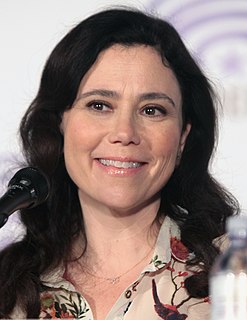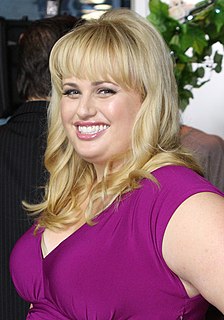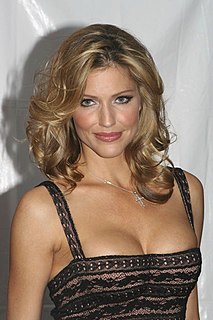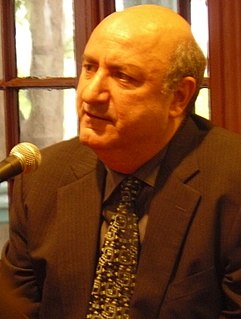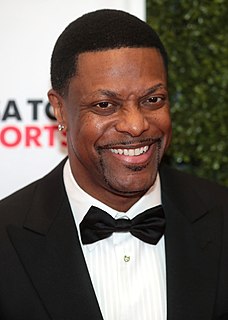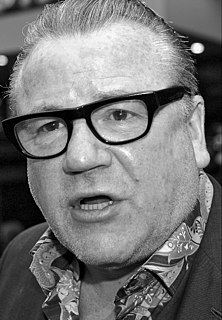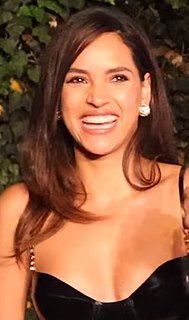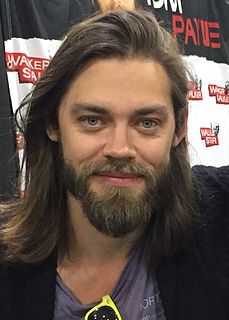A Quote by Douglas Booth
I'm quite severely dyslexic so I struggle with acting in certain ways. I always have to put in triple the amount of effort, which would always frustrate me a lot. I suppose that some people can just look at a script once and know it. That's not me. I really have to spend a bit of time with the lines. But it's my job and I've got better and better at it. If you're learning a lot, things start going quicker. Doing the lines with repetition and you just get it in your head somehow.
Related Quotes
The writing is amazing because having a hand in creating what you're going to be performing... there's nothing like it. It's always going to be better suited for you. You're always going to know the lines faster, because you wrote it. The writing is so very hard. It's the hardest part of the whole process. In some ways the acting is a lot easier and a lot more fun.
I'm not ambitious when it comes to my acting career. I'm not breaking down my agency's doors or sending out headshots. Even when I'm offered work, I always want small parts. When it comes to things that other people have written, I just don't know what I'm doing. I'm terrible at memorizing a script and reading lines. I get confused and I don't understand and it just looks fake to me. It's more difficult for me to be creative that way.
I don't write as much now as I used to, but I write. The lines still come, maybe periodically, and I'll go through these little bursts of time where I write a lot of things then a long period of time where maybe I don't write anything. Or these lines will come into my head and I'll write 'em down in a little book, just little sets of lines, but I won't try to make stories or poems out of them. I'm doing a lot of that now, just the lines.
I spent a lot of time, a lot of energy trying to be a better artist and I still [do]. I spend a lot of time focusing on my craft. If you're going to take your passion into something beyond just something for fun on the side, you got to spend a lot of time on it to be great, and then you've got to make smart decisions about who you collaborate with [and] where you live [to] put yourself in the right situations to meet the right people to catch those breaks.
Most of the time, with voice-overs, you're recording before they've got the graphics, and you also don't get a whole script. I get my lines, as I show up that day. You don't know what the rest of the story is, so you really rely on the people in the room that you're working with, so they can fill you in on what's going on, right around your particular lines.
People quote lines to me all the time. I'm always surprised - everybody has a favorite movie, and they're always different. I'm always shocked. People stop me on the street and throw lines at me from 'Tales from the Crypt: Demon Knight' and 'Deep Space Nine.' 'Shawshank' happens a lot because they play it so much on TV.
Doing an interview you're going to have certain things you want to get at, but you're better off if you play to people's strengths a bit. You're also assessing how it's going and adjusting as needed. Does your subject seem up for it, willing to do it, and is he or she enjoying the interview? Or do they need to be coaxed, or reassured, or whatever they might need from you? Like writing, interviewing is a process that you keep learning, and you're always trying to get better and better.
On every job you do, you've got to raise your game. My ambition is to just get better and better every job you do - you should never stop trying to get better. You have to teach yourself new things - I don't think you necessarily learn them from other people because you have your own style of doing things, but hopefully you get better.
My dreams are always quite attainable, I wouldn't like to spend a lot of money on a car. I've got a mental block about splurging on something so visible like that. I could do it on a watch or something because that's quite personal and it isn't something that's on show all the time, but with a car everyone thinks you're a show-off. But one thing I would really like is a Ford Mustang - for me, that's the attainable dream. You look at it and you just think "F*** yes!" - you can hear an electric guitar solo playing in your head!

